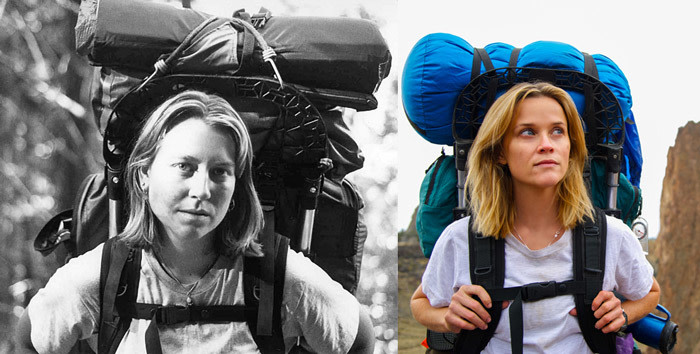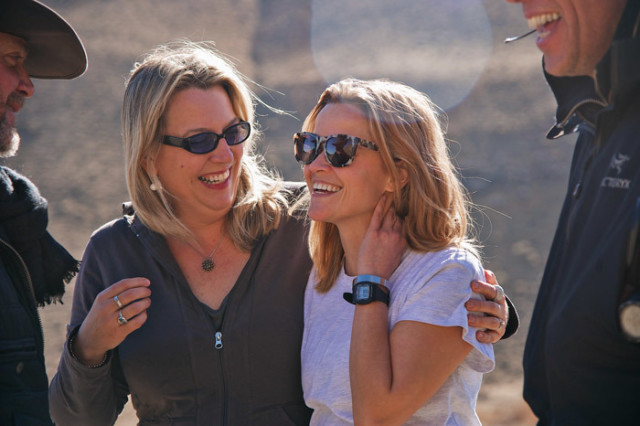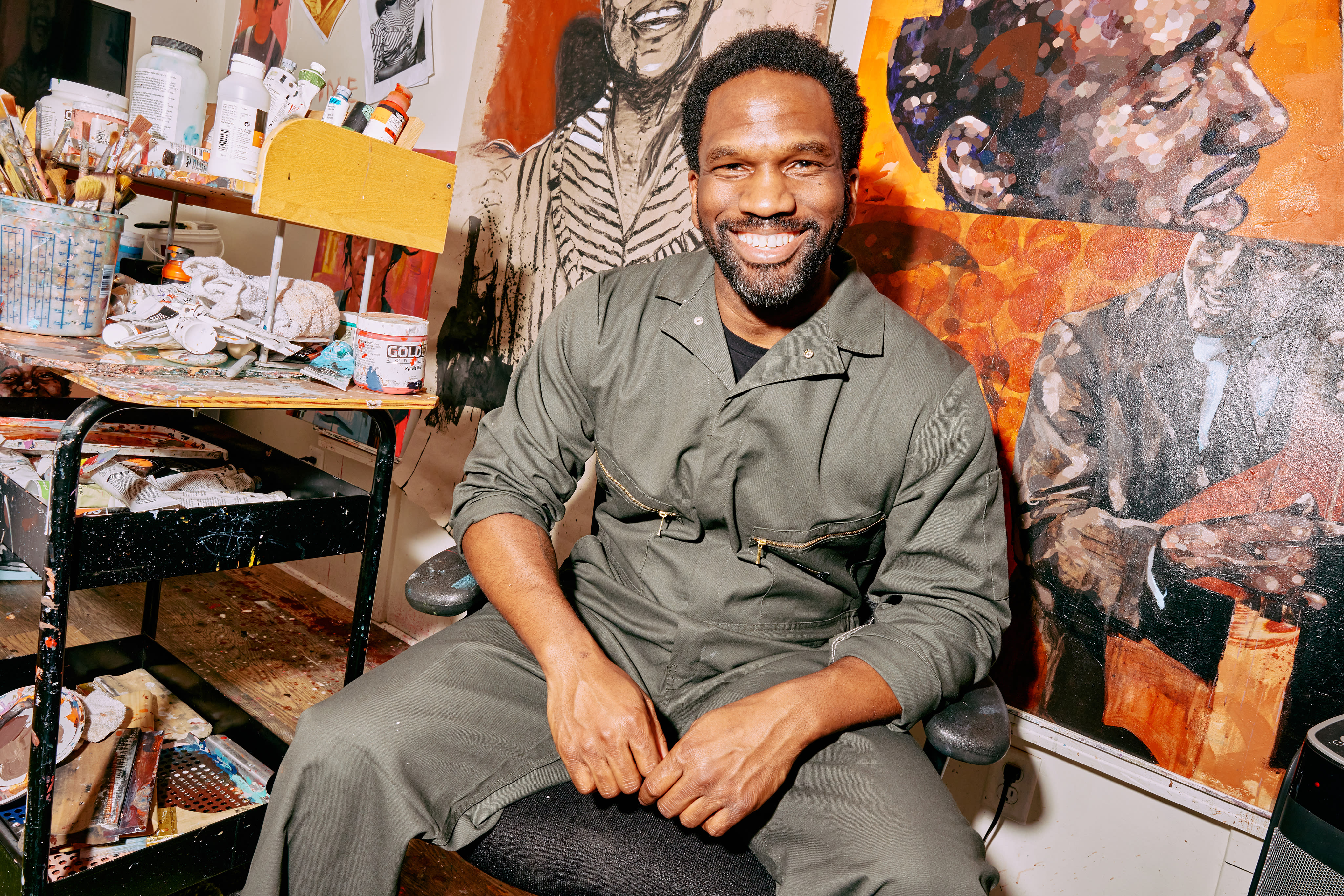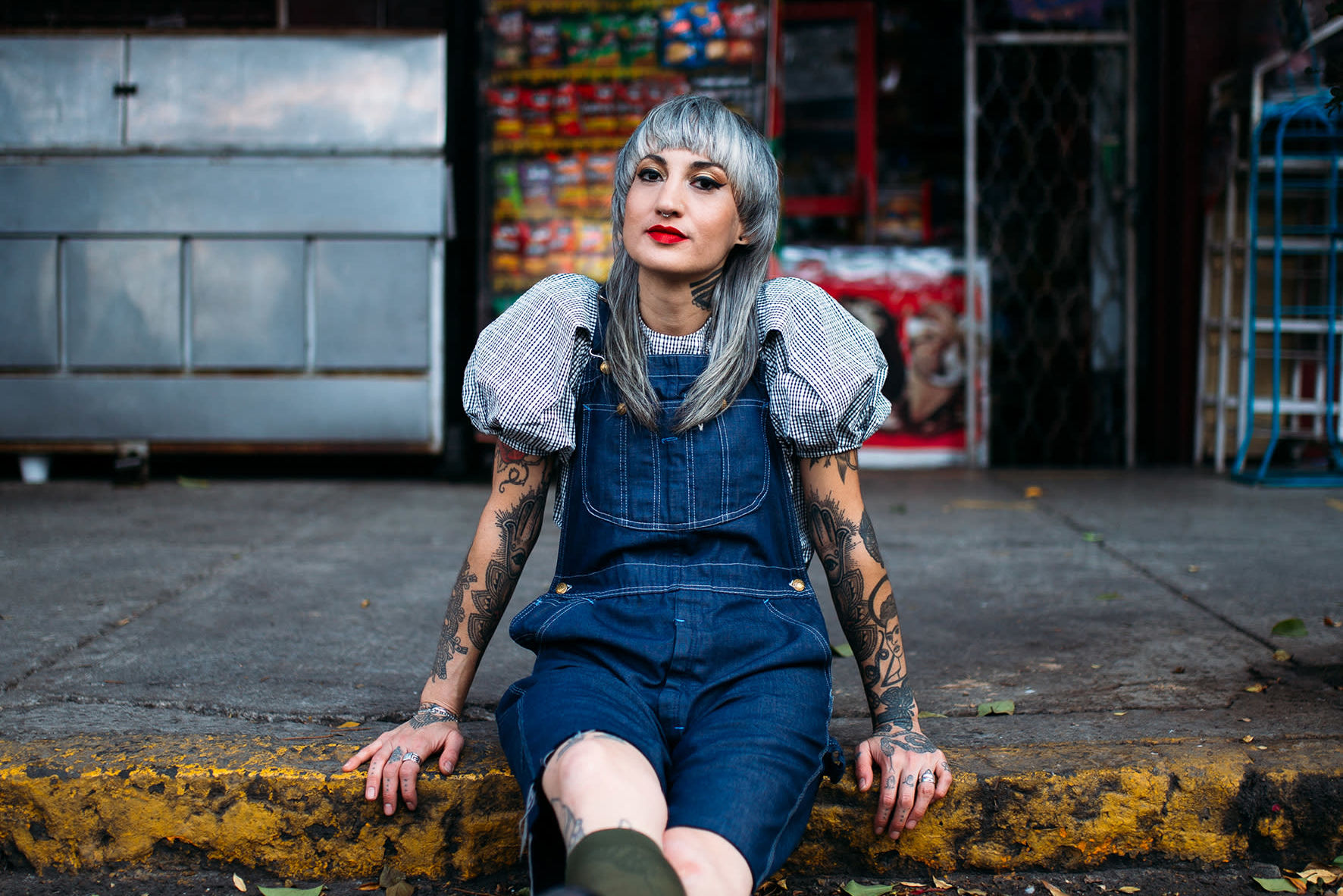Cheryl Strayed Talks About Filming 'Wild' with Reese Witherspoon (And Meeting Channing Tatum)

Cheryl Strayed on the Pacific Crest Trail in 1995; Reese Witherspoon on the PCT 2013
Ever wondered who would play you in the movie of your life? Portland author Cheryl Strayed has an emphatic answer. When the movie adaptation of her best-selling memoir Wild: From Lost to Found on the Pacific Crest Trail hits Portland theaters on December 12, it will be Reese Witherspoon wearing Strayed’s battered hiking boots through remote alpine passes and snowdrifts as she grieves the death of her mother.
In retrospect, Wild’s path to the big screen feels like kismet. Witherspoon optioned the now-46-year-old Strayed’s story before the book even came out, in March 2012—well before Oprah Winfrey launched Wild into the Eat Pray Love–level stratosphere of iconic, female-driven memoirs. Nick Hornby, author of Fever Pitch and About a Boy, asked to write the screenplay. And Canadian director Jean-Marc Vallée signed on shortly before hitting big with Dallas Buyers Club. This fall Strayed took to the film festival circuit with Witherspoon and company, and Oscar buzz is now building for Witherspoon’s raw performance (check out a slide show of their Instagram and Twitter pictures from the fests).
We caught up with Strayed to ask what it was like to watch a movie star play her, not to mention get props from Oprah. (For a writer, it’s bigger than the president— although he reportedly bought a copy, too.)
Tell me about first being contacted by Reese Witherspoon about optioning the book? How did she first track you down?
In November of 2011 I said to my literary agent, “I wonder if we should see if anyone in the film world is interested in this story.” I talked with a film agent, and she said she happened to know that Reese was in the process of forming a new production company with Bruna Papandrea. They didn’t even have a name; they’re called Pacific Standard now. They were particularly interested in roles that featured strong women because they both saw so few good roles.
Reese was given my book on a Friday. On Monday, I was at the Jupiter Hotel visiting a friend, and my cell phone rang and my agent said Reese wants to option it and play you.
Within a matter of days we were on the phone. I was thrilled, but I wanted to make sure that she had the right intentions and understood the story I was trying to tell, and I wanted to hear her plans. We hit it off. We talked for about an hour. Reese said, “I pledge to you”—she used that word “pledge”—“that I will protect this and get it made and honor it,” and I think she’s done all those thing.
Take me through the process of making the movie.
Wild had been out for about a week when I got an email from Nick Hornby, out of the blue. He wrote me the nicest email you can imagine getting from a writer you admire. Some months passed, and I got an email from Nick saying, “I would love to adapt your book for Reese and Bruna.” And I said absolutely. Then Jean-Marc Vallée came on board last summer 2013. He came to Portland, and we went to lunch in the Pearl. I could tell he was just a kindred spirit.
All along, I had prepared myself as an author to have to let go of the movie and distance myself. I made the book, and somebody else has to make the movie, and I have to allow them to carry out their vision. What’s interesting is it still isn’t my film—those people made the film. But because they listened to me every step of the way, I played a hand in every aspect, it does feel like I was part of creative team.

Strayed and Witherspoon on set together
Image: Anne Marie Fox
Did you spend much time on set?
There again, I never wanted to presume anything. From the beginning, I said to Reese, if ever you don’t want me to be there...because I can see it could be uncomfortable, playing the person who’s standing there behind the camera watching you. She was like, “no, be there.” So I was there a lot.
How was it for you to watch them film your life?
Some of the more powerful scenes for me were things like watching my daughter play the young me—watching the scenes she’s in with Laura Dern. My daughter’s name is Bobbi after my mom, and Laura plays Bobbi, and it was moving to see her leaping into Laura’s arms or snuggling with her in bed, things that my kids have never gotten to do with my mother. I cried watching that.
That must be so surreal.
It feels really strange watching people reenact things that happened to you, to dress up as you and say that they are you. There’re lots of scenes in the movie that are exactly like it was written and like it was in life.
There’s a scene just like in the book, when Reese—I don’t know whether to call her Reese or Cheryl—Cheryl and her brother go to the hospital and they find this sign on the door to their mom’s room. This nurse says, “We put ice on her eyes,” and that’s how the kids found out their mom died. That’s how I found out my mom died. One of the hardest moments of my whole life, and there it is on the screen just like it was. It’s just very surreal.
Wild had its world premiere on opening night at the Telluride International Film Festival. I presume you’d seen it before then?
Jean-Marc Vallée always wanted my opinion, so by the time I saw it on the big screen, I’d seen it a lot. And thank God. If it were the first time I saw the film, I would’ve had a heart attack. As it was, I was physically trembling.
It was exciting and scary, and also just sweet. Oprah restarted her book
club for Wild, and through that we’ve become friends—we just clicked—so I invited her and she came. I don’t have parents. I don’t get to have their presence at these moments. So it was really sweet that Oprah took the time to come and see the movie—and she loved it.
How did she discover the book?
O Magazine had interviewed me for a feature before it came out. Oprah saw that and bought the book and read it. I was on my book tour in a hotel room in Milwaukee, Wisconsin, my cell phone rang, and she said, “This is Oprah.” I just said, “Oh my god, it is,” because I recognized her voice. The whole conversation was so hilarious because she’s telling me why she loves the book, and every five minutes I’d shriek and start cursing—“No fucking way!”—and she kept laughing. She said I would like to restart my book club because I want everyone to read this book.
Wild had debuted on the New York Times bestseller list the first week it was out. At that point I thought all the exciting things I ever dreamed would happen to me had already happened. So when Oprah called, it was unbelievable. She did restart her book club and revealed herself to be a wonderful person. My kids text with her, and she’ll text them back—that’s what kind of person Oprah is.
What has it been like to travel the film festival scene with Reese, Laura, and the rest of the crew and experience the Hollywood world?
Telluride [Film Festival] is mellow and quiet. It’s super exciting—don’t get me wrong. Werner Herzog there. I chatted with Channing Tatum. I saw him in Foxcatcher and really loved the movie, and we were talking, and he asked me about my hike. I took a picture of him and posted it on my Facebook page. I had no idea he was such a big deal; I thought he was just an actor, and like 275,000 people ‘liked’ it. It was this wonderful experience of getting to meet actors and directors you’ve admired for ages. But still Telluride is down to earth: you don’t wear the fancy gowns.
But the Toronto International Film Festival, where Wild showed the weekend after, that was really amazing. It was like: here’s the difference between the book world and the film world. They just dress better for one thing. I’ve had to do more shopping in the last two months than I probably have in the last 45 years of my life. The media interest in film is obviously bigger than the media interest in books. To be on that bigger, brighter stage has been really fun for me.
Has the film’s success opened any doors for your novel Torch being turned into a movie, or your “Dear Sugar” columns into, say, a TV show?
I don’t want to talk too specifically about that yet, but absolutely, the answer is yes. One of the more general things I can tell you: having a front-row seat to the making of Wild gave me a deeper sense of how to adapt a book. So there are all kinds of ideas I have of doing original work and adaptations.
But the big thing I want to get back to is writing books. That’s where my life is. In the first month Wild was out, Elizabeth Gilbert, the author of Eat Pray Love, got in touch—I don’t know her and still haven’t met her in person—but she was so helpful. She said, “Don’t beat yourself up about not getting time to write for the next couple of years.” And it really did take some guilt and pressure off of me. This moment will pass, and I’ll be able to go back to my writing life.
I’ve already started working on another couple of books. One’s another memoir, and one’s a novel. I’m not sure which I’m going to sink into first, but I have a toe in each of them.
At your recent talk at PNCA, there were people crying and others going into long confessionals during the Q&A on how Wild impacted them. You said you were not writing a hiking how-to book, but has it become an emotional how-to book instead?
It’s profoundly moving to me and gratifying. I mostly have nothing but positive experiences. I think it’s ok when people cry when I’m talking about my journey. When people cry, it’s a sign that they’re feeling something real—something I wrote revealed something to them.
Sometimes that can be a little uncomfortable for me. Some people say, “you don’t know it, but we’re best friends.” And I laugh: I know how that feels to know somebody through their work, and yet you don’t know them at all.
Do they make assumptions about who you are?
Absolutely. We always do that with anyone in the public eye. When you read Wild and Tiny Beautiful Things [a collection of “Dear Sugar” columns], over and over I assert my humanity: both my strengths and
my flaws, my wisdom and my mistakes. But it is interesting that the takeaway for some people who love the books is they put me on a pedestal that can feel uncomfortable for me, because of course I’m a person just like everyone else. But the truth is: everyone is. Oprah is, Reese is. Everyone we have ever admired from afar, they are as complicated and human as any one of us.




